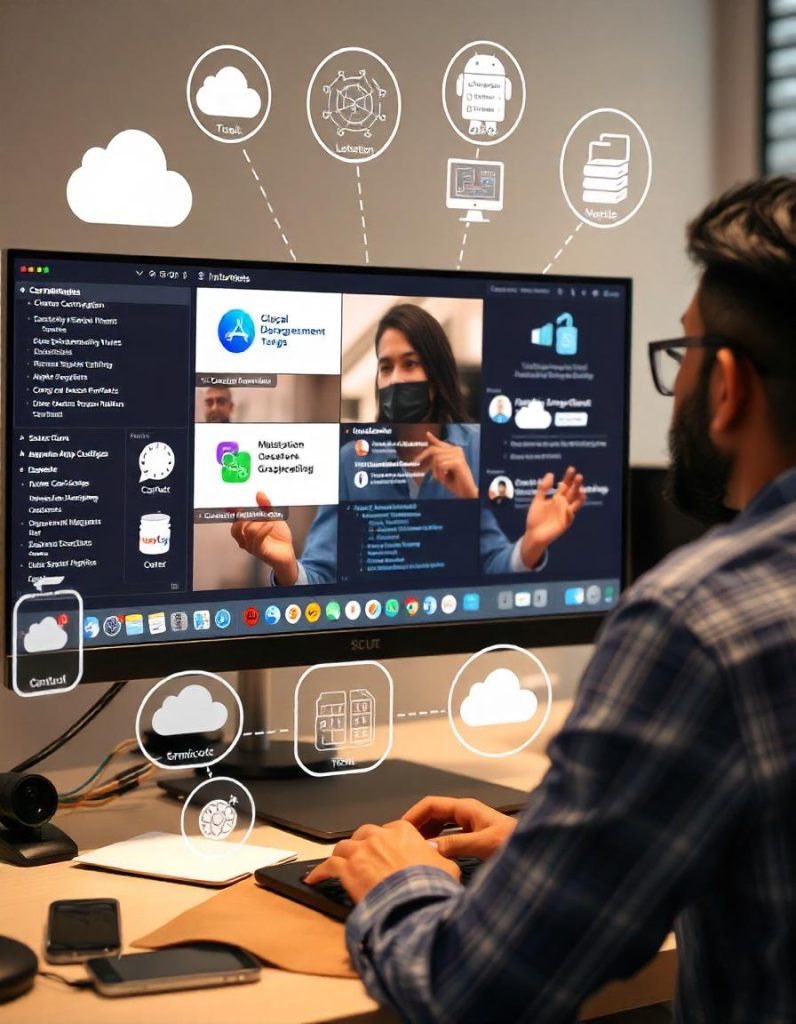
The field of Information Technology (IT) is vast, dynamic, and ever-evolving. Acquiring IT skills can open doors to a range of career opportunities, from software development to cybersecurity and beyond. If you want to learn IT skills at your own pace, follow these comprehensive steps to guide your journey.
1. Define Your Goals
Before diving into IT, determine your objectives. Are you aiming to:
- Build a career in IT?
- Gain a certification?
- Solve specific technical problems?
- Understand technology better for personal projects?
Clear goals will help you focus your efforts and measure your progress.
2. Identify the Right IT Field
IT encompasses numerous fields. Explore areas like:
- Programming and Software Development: Focused on writing and testing code.
- Web Development: Building websites and web applications.
- Data Science and Analytics: Extracting insights from data.
- Cybersecurity: Protecting systems and networks.
- Networking: Designing and managing networks.
- Cloud Computing: Working with cloud platforms like AWS or Azure.
Research each field to find what aligns with your interests and career goals.
3. Choose the Right Learning Resources
Once you’ve identified your focus area, gather high-quality resources. Consider:
- Online Courses: Platforms like Coursera, edX, Udemy, and LinkedIn Learning offer structured courses.
- Books and eBooks: Titles like “Automate the Boring Stuff with Python” or “Networking All-in-One For Dummies” can be invaluable.
- Tutorials and Blogs: Websites like freeCodeCamp, W3Schools, and Medium provide excellent guides.
- YouTube Channels: Many creators offer free, in-depth tutorials.
- Podcasts: Stay updated with IT trends and tips by listening to IT-focused podcasts.
4. Set Up a Practical Learning Environment
Theory alone isn’t enough in IT. Create a hands-on environment:
- Use Virtual Labs: Platforms like Cisco Packet Tracer or AWS Free Tier let you practice networking and cloud computing.
- Install Tools Locally: Install IDEs like Visual Studio Code for coding or tools like MySQL for databases.
- Experiment with Open-Source Projects: Contribute to GitHub projects to gain real-world experience.
5. Create a Learning Schedule
Self-paced learning requires discipline. Set achievable milestones and allocate dedicated time:
- Break large topics into smaller chunks.
- Use techniques like Pomodoro to maintain focus.
- Keep a journal to track your progress and reflect on what you’ve learned.
6. Practice and Build Projects
Practical application solidifies learning. Start with small projects, then scale up:
- Beginner Projects: Build a personal website or write a basic script.
- Intermediate Projects: Create a simple app or set up a home server.
- Advanced Projects: Develop a machine learning model or a comprehensive network infrastructure.
Projects not only reinforce your skills but also create a portfolio to showcase your abilities.
7. Join Communities
Connect with others to enhance your learning experience:
- Participate in forums like Stack Overflow or Reddit’s IT-related subreddits.
- Join local or virtual meetups and hackathons.
- Follow IT influencers and thought leaders on LinkedIn and Twitter.
Networking can lead to valuable mentorship and collaboration opportunities.
8. Test and Validate Your Knowledge
Take quizzes and exams to ensure you understand the material. Platforms like HackerRank, LeetCode, and Codewars offer coding challenges. For certifications, consider options like:
- CompTIA A+ (General IT knowledge).
- AWS Certified Solutions Architect (Cloud skills).
- Certified Ethical Hacker (CEH) (Cybersecurity expertise).
9. Stay Updated
Technology evolves rapidly. Keep learning by:
- Following tech blogs and newsletters like TechCrunch or Ars Technica.
- Subscribing to YouTube channels that cover emerging technologies.
- Attending webinars and industry conferences.
Staying updated ensures your skills remain relevant in the ever-changing IT landscape.
10. Embrace Lifelong Learning
The journey in IT is continuous. As you master foundational skills, explore advanced topics and emerging technologies like Artificial Intelligence, Blockchain, or DevOps.
Cultivate curiosity and maintain a growth mindset. Every step you take adds value to your knowledge base and career potential.
Learning IT skills at your own pace is a rewarding endeavor. With clear goals, structured plans, and consistent practice, you can develop expertise in your chosen IT domain. Remember, the key to success lies in persistence, hands-on experience, and a willingness to adapt and grow. Start your journey today, and the possibilities will be limitless.






